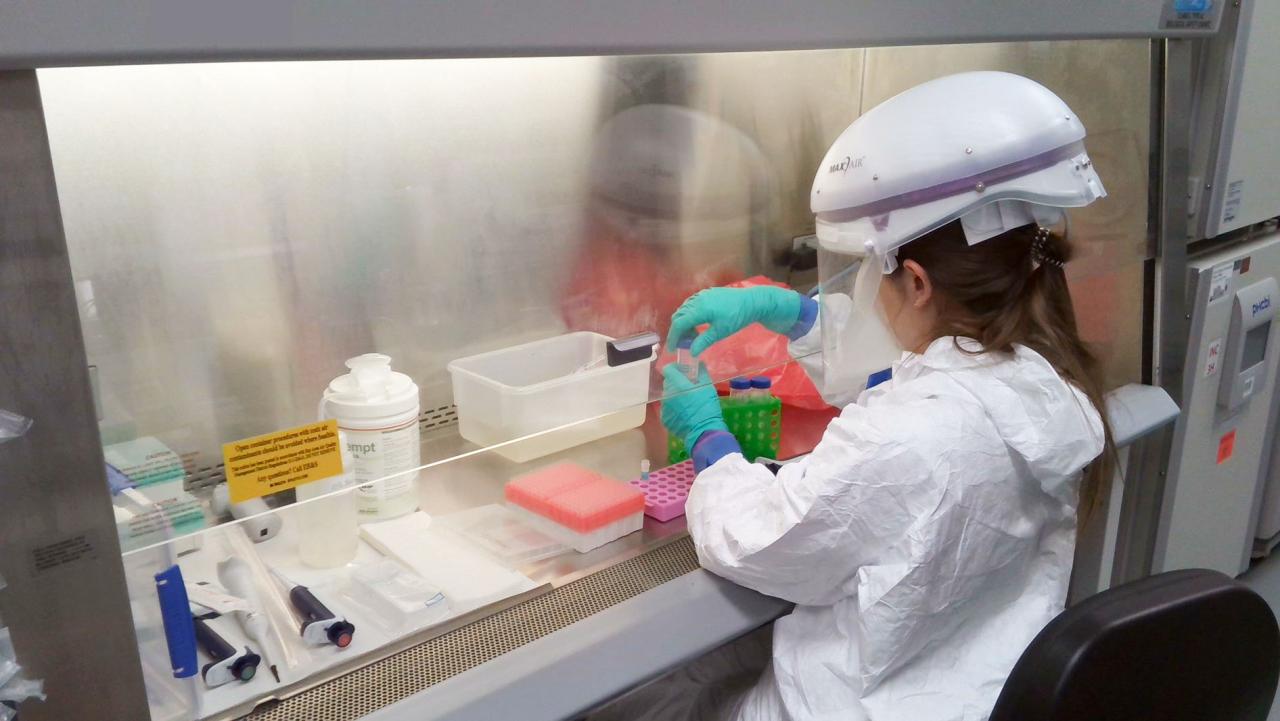Meet Gilead’s COVID-19 Virus Variants Hunters
Gilead Sciences continues its efforts against COVID-19 by mobilizing teams of virologists as 'variant hunters' to monitor new strains. Gilead has tested over 15 variants of SARS-CoV-2 since the pandemic began. Upon identifying a 'variant of concern,' the company coordinates with the CDC and global collaborators to collect samples and assess the effectiveness of existing therapeutics. Recent developments include utilizing engineered variants, or 'replicons,' to accelerate testing processes as new variants emerge. This proactive approach aims to ensure that COVID-19 treatments remain effective.
- Gilead has tested over 15 SARS-CoV-2 variants, demonstrating extensive research capabilities.
- The company has established global collaborations to identify and test new COVID-19 variants.
- Development of engineered variants ('replicons') could significantly expedite therapeutic testing.
- None.
NORTHAMPTON, MA / ACCESSWIRE / January 12, 2023 / Gilead Sciences

Every time a serious new COVID-19 virus variant emerges, Gilead virologists Charlotte Hedskog and John Bilello, alongside their teams, mobilize as so-called "variant hunters."
Their mission is to determine whether COVID-19 therapeutics will remain active against new strains. The process demands perseverance and collaboration, as the results have broad implications for treating people around the world with COVID-19.
"It can be a challenging process for sure as some variants are harder to find," says Charlotte, Senior Research Scientist on the Clinical Virology team.
But the teams of experts are up to the task. Since COVID-19 began to emerge and spread globally in late 2019 and early 2020, the scientists have tested more than 15 different genetic variants of SARS-CoV-2 - the virus that causes COVID-19.
"This is a process that involves many people with a commitment to collaboration - internally and externally," says John, Director of Virology, who leads the COVID-19 Discovery Virology team. "We all rely on each other to find these isolates and identify which ones to go after."
Steps After a "Variant of Concern" is Identified
The work begins when the Centers for Disease Control and Prevention (CDC) or the World Health Organization (WHO) issues an alert signaling a new SARS-CoV-2 "variant of concern" - a genetically different virus strain that is rising in transmission rate, causing more severe disease, or possibly capable of evading vaccines, therapeutic antibodies, or antivirals.
"When we hear that there is something new, we immediately reach out to our collaborators," says Charlotte.
John, Charlotte, and their colleagues have developed many connections over time with domestic and international collaborators in academia who have isolated new variants they were looking for. For example, early on in the pandemic, the scientists worked with collaborators to obtain the isolated strain from the first reported case of COVID-19 in the United States identified in Washington State.
"Recently, the team has established a partner in India and is also reaching out to other potential partners around the world," says Charlotte. "This includes South Africa, where the Omicron virus was first identified."
Testing a New Variant
The evolving virus continues to reappear in different forms throughout the world, and sometimes it can be hard to pin down an isolated sample of a new variant. When the variant is found, Gilead then applies to the CDC for a special permit to ship the variant to its labs in Foster City.
Once in hand, trained laboratory personnel in both the Clinical and Discovery Virology teams examine it in a specialized biosafety lab, built in 2020 for the study of SARS-CoV-2. They test how the virus samples respond when exposed to different levels of COVID-19 therapeutics. If the level of therapeutics needed to inhibit the virus doesn't change, that means the drug maintains its full activity against the new variant in a laboratory environment. The team used this method to test all the major prior variants and the more recent Omicron BA.4 and BA.5 subvariants.
To streamline the testing process, the researchers now are developing a method in which they can create an engineered version of a variant in the lab, based on the available genetic sequencing data. These ‘replicons' are a valuable alternative method for testing COVID-19 therapeutics against new strains.
"The 'replicons' would support producing results much faster, which is important to ultimately help people with a new COVID-19 variant, faster," says Charlotte. "As the COVID-19 pandemic continues to evolve, new variants of concern will certainly emerge. We need to continue to monitor these variants and generate antiviral data for potential future variants of concern."
Pictured above is Venice Du Pont, a research scientist on the COVID-19 Discovery Virology team, working in Gilead's Biosafety Level 3 (BSL-3) special lab.
Originally published by Gilead
View additional multimedia and more ESG storytelling from Gilead Sciences on 3blmedia.com.
Contact Info:
Spokesperson: Gilead Sciences
Website: https://www.3blmedia.com/profiles/gilead-sciences
Email: info@3blmedia.com
SOURCE: Gilead Sciences
View source version on accesswire.com:
https://www.accesswire.com/735025/Meet-Gileads-COVID-19-Virus-Variants-Hunters
FAQ
What is GILD doing to combat COVID-19 variants?
How many COVID-19 variants has Gilead tested?
What does a 'variant of concern' mean for Gilead?







